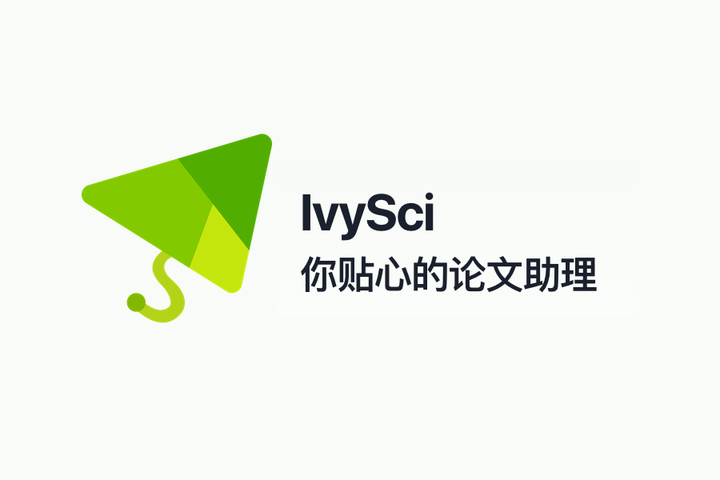Exploring Risk Aspects in Public-Private Partnership Infrastructure Research: A Bibliometric Analysis
DOI:
https://doi.org/10.35166/jipm.v7i1.45Keywords:
Bibliometric analysis, Infrastructure, PPP, Risk aspectsAbstract
The risk aspect is a key component of the Public-Private Partnership (PPP) infrastructure scheme. The study employed bibliometric analysis to shed light on research trends concerning risk aspects in PPP. The author focused on publication trends, co-authorship networks, local citation patterns, cluster analysis, and co-occurrence of key terms. In addition, the authors compiled a list of studies on the risk aspects of PPP infrastructure. Using bibliometric data from 356 Scopus-indexed publications, this study identifies the leading authors, nations, institutions, publishers, influential papers, and research topics related PPP infrastructure risk over the past decade (2014-2023). The findings reveal that from 2014 to 2017, research predominantly focused on risk factors, success criteria, development projects, contracts, toll roads, water supply, and social infrastructure. Between 2018 and 2020, the emphasis shifted towards risk assessment, risk analysis, risk management, and risk allocation. Since 2021, the research trends have evolved to include urban growth, investment, the private sector, partnership models, internet protocols, and intelligent systems. Future research on PPP infrastructure risk should incorporate technological concepts and business entity perspectives. This study also contextualizes its findings within the broader landscape of emerging markets in Asia and globally and highlights these trends in the Indonesian context.
References
Akhtar, M., Mufti, N. A., Mubin, S., Saleem, M. Q., Zahoor, S., & Ullah, S. (2023). Identification of various execution modes and their respective risks for public-private partnership (PPP) infrastructure projects. Buildings, 13(8). https://doi.org/10.3390/buildings13081889
Ali, Q., Parveen, S., Aspiranti, T., Nurhayati, N., & Rusgianto, S. (2023). Barriers to the adoption of Islamic banking: A bibliometric analysis. International Journal of Ethics and Systems. https://doi.org/10.1108/ijoes-01-2023-0001
Ameyaw, E. E., & Chan, A. P. (2015). Risk ranking and analysis in PPP water supply infrastructure projects. Facilities, 33(7-8), 428–453. https://doi.org/10.1108/F-12-2013-0091
Ameyaw, E. E., & Chan, A. P. C. (2015). Evaluation and ranking of risk factors in public-private partnership water supply projects in developing countries using fuzzy synthetic evaluation approach. Expert Systems with Applications, 42(12), 5102–5116. https://doi.org/10.1016/j.eswa.2015.02.041
Amiri, O., Ayazi, A., Rahimi, M., & Khazaeni, G. (2022). Risks of water and wastewater PPP projects: An investors’ perspective. Construction Innovation, 22(4), 1104–1121. https://doi.org/10.1108/CI-04-2021-0073
Bao, F., Martek, I., Chen, C., Wu, Q., & Chan, A. P. C. (2022). Critical risks inherent to the transfer phase of public-private partnership water projects in China. Journal of Management in Engineering, 38(3). https://doi.org/10.1061/(ASCE)ME.1943-5479.0001024
Belghiti, Z., & Angade, K. (2023). Risk assessment of public-private partnerships projects in developing countries. International Journal of Critical Infrastructures, 19(2), 108–123. https://doi.org/10.1504/IJCIS.2023.130448
Braeckman, J. P., Markkanen, S., & Seega, N. (2022). Financiers’ perceptions of risk in relation to large hydropower projects. Environmental Research: Infrastructure and Sustainability, 2(1). https://doi.org/10.1088/2634-4505/ac4e70
Carbonara, N., Costantino, N., & Pellegrino, R. (2014). Concession period for PPPs: A win-win model for a fair risk sharing. International Journal of Project Management, 32(7), 1223–1232. https://doi.org/10.1016/j.ijproman.2014.01.007
Chan, A. P. C., Lam, P. T. I., Wen, Y., Ameyaw, E. E., Wang, S., & Ke, Y. (2015). Cross-sectional analysis of critical risk factors for PPP water projects in China. Journal of Infrastructure Systems, 21(1). https://doi.org/10.1061/(ASCE)IS.1943-555X.0000214
Chen, C., Lv, L., Wang, Z., & Qiao, R. (2023). Bargaining optimization model for risk renegotiation with fairness concerns in infrastructure PPP projects. Engineering, Construction, and Architectural Management, 30(9), 3876–3894. https://doi.org/10.1108/ECAM-11-2021-1006
Chiang, L. Y., Earl, G., Liu, B., Reid, S., & Roca, E. (2022). Risk analysis in social housing delivery: A public-private partnerships approach. Australian Journal of Public Administration. https://doi.org/10.1111/1467-8500.12535
Chou, J. S., & Pramudawardhani, D. (2015). Cross-country comparisons of key drivers, critical success factors, and risk allocation for public-private partnership projects. International Journal of Project Management, 33(5), 1136–1150. https://doi.org/10.1016/j.ijproman.2014.12.003
De Castro E Silva Neto, D., Cruz, C. O., Rodrigues, F., & Silva, P. (2016). Bibliometric analysis of PPP and PFI literature: Overview of 25 years of research. Journal of Construction Engineering and Management, 142(10). https://doi.org/10.1061/(ASCE)CO.1943-7862.0001163
Donthu, N., Kumar, S., Mukherjee, D., Pandey, N., & Lim, W. M. (2021). How to conduct a bibliometric analysis: An overview and guidelines. Journal of Business Research, 133, 285–296. https://doi.org/10.1016/j.jbusres.2021.04.070
Dorfeshan, Y., Allah Taleizadeh, A., & Toloo, M. (2022). Assessment of risk-sharing ratio with considering budget constraint and disruption risk under a triangular Pythagorean fuzzy environment in public-private partnership projects. Expert Systems with Applications, 203. https://doi.org/10.1016/j.eswa.2022.117245
Fan, W., Song, J., Chen, L., & Shi, J. (2022). Research on risk compensation distribution of sludge treatment private-public–partnership (PPP) project based on ecological perspective. Journal of Environmental Protection and Ecology, 23(6), 2289–2296. https://www.scopus.com/inward/record.uri?eid=2-s2.0-85140105978&partnerID=40&md5=011b97e80560117f3a58211a5f411a13
Fathi, M., & Shrestha, P. P. (2023). Identification of critical success and risk factors for public-private partnership highway projects. Journal of Legal Affairs and Dispute Resolution in Engineering and Construction, 15(1). https://doi.org/10.1061/(ASCE)LA.1943-4170.0000587
Feng, Y., Guo, X., Wei, B., & Chen, B. (2021). A fuzzy analytic hierarchy process for risk evaluation of urban rail transit PPP projects. Journal of Intelligent and Fuzzy Systems, 41(4), 5117–5128. https://doi.org/10.3233/JIFS-189997
Geng, L., Zheng, H., & Sun, Y. (2022). The effect of completion risk and project profitability on the investment decisions of the private sector in PPP projects. Mathematical Problems in Engineering, 2022. https://doi.org/10.1155/2022/3185061
Hartono, B., Ghifari, M. D. A., & Dianita, O. (2021). Risk allocation preferences in Indonesian electricity public-private partnership projects: A conjoint analysis. IEEE Engineering Management Review, 49(3), 154–174. https://doi.org/10.1109/EMR.2021.3087809
Jokar, E., Aminnejad, B., & Lork, A. (2021). Assessing and prioritizing risks in public-private partnership (PPP) projects using the integration of fuzzy multi-criteria decision-making methods. Operations Research Perspectives, 8. https://doi.org/10.1016/j.orp.2021.100190
Jokar, E., Aminnejad, B., & Lork, A. (2023). A risk allocation model among the elements of freeway projects in public-private partnership (PPP) method using integrated fuzzy multi-criteria decision-making techniques. Australian Journal of Civil Engineering, 21(1), 116–140. https://doi.org/10.1080/14488353.2022.2083288
Khahro, S. H., Ali, T. H., Hassan, S., Zainun, N. Y., Javed, Y., & Memon, S. A. (2021). Risk severity matrix for sustainable public-private partnership projects in developing countries. Sustainability, 13(6). https://doi.org/10.3390/su13063292
Kouton, J., Sanogo, W., & Djomgoue, N. (2023). Risk allocation in energy infrastructure PPPs projects in selected African countries: Does institutional quality, PPPs experience, and income level make a difference? Economic Change and Restructuring, 56(1), 537–580. https://doi.org/10.1007/s10644-022-09433-0
Kumar, L., Jindal, A., & Velaga, N. R. (2018). Financial risk assessment and modeling of PPP-based Indian highway infrastructure projects. Transport Policy, 62, 2–11. https://doi.org/10.1016/j.tranpol.2017.03.010
Kumar, S., Pandey, N., Lim, W. M., Chatterjee, A. N., & Pandey, N. (2021). What do we know about transfer pricing? Insights from bibliometric analysis. Journal of Business Research, 134, 275–287. https://doi.org/10.1016/j.jbusres.2021.05.041
Li, Z., & Wang, H. (2023). Exploring risk factors affecting sustainable outcomes of global public-private partnership (PPP) projects: A stakeholder perspective. Buildings, 13(9). https://doi.org/10.3390/buildings13092140
Lima, S., Brochado, A., & Marques, R. C. (2023). Public-private partnerships: A fresh risk-based approach to water sector projects Infrastructures, 8(6), https://doi.org/10.3390/infrastructures8060102
Liu, J., Love, P. E. D., Davis, P. R., Smith, J., & Regan, M. (2015). Conceptual framework for the performance measurement of public-private partnerships. Journal of Infrastructure Systems, 21(1), 04014023. https://doi.org/10.1061/(ASCE)IS.1943-555X.0000210
Liyanage, C., & Villalba-Romero, F. (2021). Disaster risk reduction compliance framework for public-private partnership (PPP) port projects International Journal of Disaster Resilience in the Built Environment, 12(5), 484–499. https://doi.org/10.1108/IJDRBE-05-2020-0053
Mazher, K. M., Chan, A. P. C., Choudhry, R. M., Zahoor, H., Edwards, D. J., Ghaithan, A. M., Mohammed, A., & Aziz, M. (2022). Identifying measures of effective risk management for public-private partnership infrastructure projects in developing countries. Sustainability, 14(21), 14149. https://doi.org/10.3390/su142114149
Moradi Shahdadi, L., Aminnejad, B., Sarvari, H., & Chan, D. W. M. (2023). Determining the critical risk factors of implementing public-private partnership in water and wastewater infrastructure facilities: Perspectives of private and public partners in Iran. Buildings, 13(11). https://doi.org/10.3390/buildings13112735
Nguyen, A., Mollik, A., & Chih, Y. Y. (2018). Managing critical risks affecting the financial viability of public-private partnership projects: A case study of toll road projects in Vietnam. Journal of Construction Engineering and Management, 144(12). https://doi.org/10.1061/(ASCE)CO.1943-7862.0001571
Pai, S., Patnaik, B., Mittal, A., & Anand, N. (2018). Identification of risks causing time and cost overrun in roads and highway projects in India International Journal of Civil Engineering and Technology, 9(3), 683–697. https://www.scopus.com/inward/record.uri?eid=2-s2.0-85044515752&partnerID=40&md5=052916fd86fe7768157d85651fc6af9a
Putri, F. R., Susanti, B., & Toyfur, M. F. (2023). Critical risk analysis of toll road public-private partnership (PPP) project construction phase. ASEAN Engineering Journal, 13(3), 117–126. https://doi.org/10.11113/aej.V13.19462
Ramli, N. H., Adnan, H., & Ismail, W. N. W. (2021). Assessing financial risk in managing public-partnership (PPP) projects. Malaysian Construction Research Journal, 35(3), 11–22. https://www.scopus.com/inward/record.uri?eid=2-s2.0-85129758018&partnerID=40&md5=1cae176a433030dbd96775243d9a3003
Selim, A. M., Yousef, P. H. A., & Hagag, M. R. (2019). Risk allocation for infrastructure projects by PPPs – Under environmental management and risk assessment mechanism. International Journal of Risk Assessment and Management, 22(1), 89–108. https://doi.org/10.1504/ijram.2019.096698
Shams Eldin, R. R. M., Osman, H. M., Georgy, M. E., & Ibrahim, M. E. (2019). Identification and ranking of the risks encountered by wastewater treatment and desalination PPPs in Egypt. Journal of Engineering and Applied Science, 66(2), 243–264. https://www.scopus.com/inward/record.uri?eid=2-s2.0-85064122778&partnerID=40&md5=c4eaf57be5449d6eb8c462e6cf11d425
Sholihin, M., Ali, R., & Wanto, D. (2021). Shariah compliance in Islamic economics: A bibliometric analysis. Malaysian Journal of Economic Studies, 58(2), 315–337. https://doi.org/10.22452/MJES.vol58no2.7
Sidorenko, A., Kilinkarov, V., & Belkov, A. (2021). Risk management in public-private partnerships and other major infrastructure projects. EDPACS, 63(5), 6–19. https://doi.org/10.1080/07366981.2020.1846863
Sumrit, D. (2021). A hybrid fuzzy multi-criteria decision-making model for prioritizing risk mitigation strategies in deep-sea port public-private partnerships. International Journal of Management and Decision Making, 20(4), 412–441. https://doi.org/10.1504/IJMDM.2021.118552
Sun, Y., Liu, M., Hao, S., & Wei, M. (2023). Investment risk assessment of social capital in urban rail transit public-private partnership projects. Journal of Asian Architecture and Building Engineering. https://doi.org/10.1080/13467581.2023.2287716
Sunandar, A., & Indiyati, D. (2023). The influence of the planning and preparation stage on the success of public-private partnership local government scheme (KPDBU) availability payment in Indonesia. Proceedings of the International Conference on Sustainable Collaboration in Business, Technology, Information, and Innovation (SCBTII 2023) (pp. 93–112). https://doi.org/10.2991/978-94-6463-292-7_7
Tamošaitienė, J., Sarvari, H., Chan, D. W. M., & Cristofaro, M. (2021). Assessing the barriers and risks to private sector participation in infrastructure construction projects in developing countries of Middle East. Sustainability, 13(1), 1–20, Article 153. https://doi.org/10.3390/su13010153
Wang, H., Xiong, W., Wu, G., & Zhu, D. (2018). Public-private partnership in public administration discipline: A literature review. Public Management Review, 20(2), 293–316. https://doi.org/10.1080/14719037.2017.1313445
Xu, Y., Chan, A. P. C., Xia, B., Qian, Q. K., Liu, Y., & Peng, Y. (2015). Critical risk factors affecting the implementation of PPP waste-to-energy projects in China. Applied Energy, 158, 403–411. https://doi.org/10.1016/j.apenergy.2015.08.043
Zapata Quimbayo, C. A., & Mejía Vega, C. A. (2023). Credit risk in infrastructure PPP projects under the real options approach. Construction Management and Economics, 41(4), 293–306. https://doi.org/10.1080/01446193.2022.2151023
Zhai, W., Ding, J., & Ding, L. (2021). Investment risk grade evaluation of new town construction PPP projects: Perspective from the private sector. Journal of Urban Planning and Development, 147(2). https://doi.org/10.1061/(ASCE)UP.1943-5444.0000665
Zhang, J., Wang, T., & Zhang, L. (2021). Legal risk assessment framework for international PPP projects based on metanetwork. Journal of Construction Engineering and Management, 147(8). https://doi.org/10.1061/(ASCE)CO.1943-7862.0002110
Zhang, Y., He, N., Li, Y., Chen, Y., Wang, L., & Ran, Y. (2021). Risk assessment of water environment treatment PPP projects based on a cloud model. Discrete Dynamics in Nature and Society, 2021. https://doi.org/10.1155/2021/7027990
Downloads
Published
Issue
Section
License
Copyright (c) 2024 Journal of Infrastructure Policy and Management (JIPM)

This work is licensed under a Creative Commons Attribution-ShareAlike 4.0 International License.















